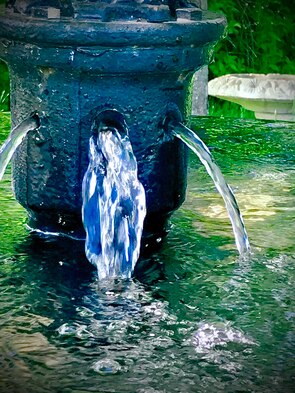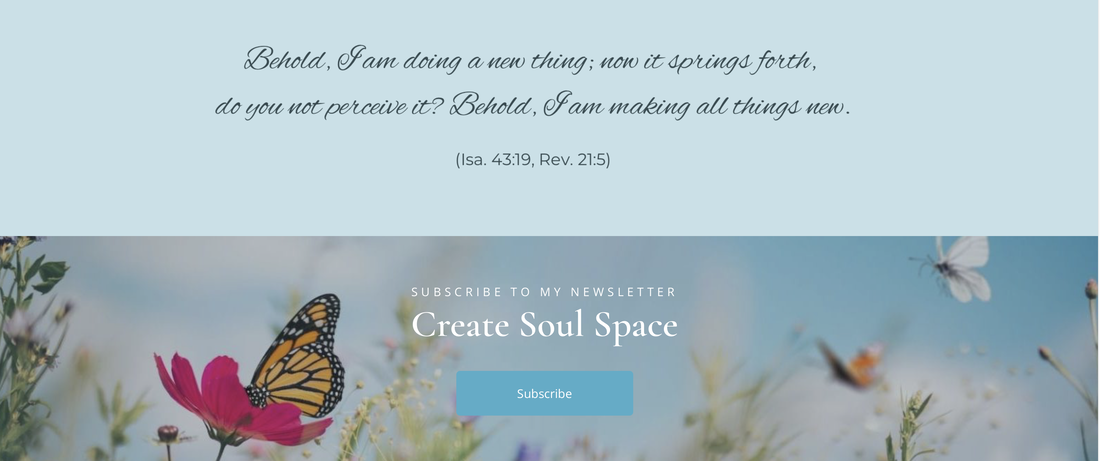|
When we Surrender, we’re filled with such spiritual energy that must Act. God is a Deity of action and interaction, melding and shaping, and the goal of our spiritual lives is to imitate Him as fully as we can. When we reach the stage of act, we’re being called to become an enthusiastic participant in the shaping of Divine Will within our world. We can’t expect to ask, then sit back and let God steer the car. We may be guided, but ultimately we have to do the driving. Think of this guidance as the Divine GPS; we’ll be shown the way, but we have to grip the wheel in our own hands in order to get where we need to go. And we can be reassured that if we make a wrong turn, we’ll hear the intuitive Voice within urging us to change course. “Recalculating … recalculating …” We’ve already spoken of how essential it is to release, using the analogy of the wedding vessels: we need to empty ourselves of all the toxic things in our lives so we can be receptive to spiritual filling. The key to that story is the simple reminder that if the vessels hadn’t been empty, they never would have been chosen to be filled with the Living Water. After we release, we then surrender to the unfolding process of spiritual regeneration. However, there’s another mystery to unlocking the understanding of ourselves as receptive vessels. Once we’ve released and surrendered, we should now keep our vessels filled with the transforming Water of the Spirit -- and that Water must keep moving. We all know that motionless water will grow stagnant. A film of slimy green gunk tends to form over the top of lifeless pools, rendering the liquid useless for drinking, bathing, or any other productive use. We can’t let this happen to us. Once we’ve reached the spiritual stage of surrender and have balanced the three powers of our soul so that the last, our personal will, is in complete alignment with God’s will, we must pour ourselves out for others. This is the spiritual stage of action. We’ve already learned that when we empty ourselves, we have to be sure we fill with Holy Spirit; if we don’t, the false ambitions of our surface-selves will try to creep back in. The easiest way to envision this constant filling is to think of God as a beautiful medieval fountain. In the Middle Ages, these fountains were precious because they acted as the water source for the cities. Often scarce and thus sacred, water flowed in, water flowed out, refreshing and revitalizing the entire city. With God as the Fountain, we need to keep our vessels beneath the cascading flow of Spiritual Water. By remaining in this divine flow, we’re able to pour this Water out for the benefit and hydration of others without our vessels ever emptying. This sort of spiritual giving is necessary, and will never drain us. Once we’ve reached the place where we can drink of this Water, we need to remain in alignment so we can help others to drink as well. We do this by sharing our lives in patience, love, and unselfish actions. We truly act through the Spirit of God. This spiritual call to action doesn’t mean we have to jump up and do something elaborate, such as become the next St. Mother Theresa or build a house for our homeless neighbor out of nothing but driftwood and sweat. What it does mean is that we must share what we’ve learned, expand our growth by helping others in whatever way our abilities and talents allow. It’s at this point on our path that we truly live our spirituality. Reading a few inspiring passages and then deleting them from our inbox before continuing on with our lives doesn’t accomplish anything; we must actually dwell within the Word, breathe the Word, allow the Word to infiltrate us. Each and every day, each and every moment, we must live our spirituality to the point that it becomes so ingrained in our souls that it’s a natural, intuitive part of our beinghood. Although this takes practice, it’s not as difficult as it sounds. Once we’ve aligned the three powers of our soul--memory, understanding, and will—they interact and interchange with each other in such a seamless, cohesive way that to separate them would be impossible. To live a graceful life at every moment of each day takes mystical memory. This memory is the intuitive longing of our spirits which feeds into our consciousness and creates a divine longing. As we strengthen our memory, spiritual understanding increases to help intensify the remembrance of our holy selves. We then consciously use our free will to manifest this sacred understanding by offering a smile to a stranger, a helping hand to a friend, and a kind word to an acquaintance; we live our lives from a place of unconditional love and patience, respecting others while at the same time respecting ourselves. We allow for positive interactions, eliminating the negative connections which damage our spirits and crush our souls. We perpetually live in a place of joy, even when the circumstances around us are less than joyful. Staying under the Fountain—remaining within Divine Alignment—takes continuous work and guidance, and ways in which to do this will be described in the weeks to come. For now, simply remember this: Do for others what you’re asking the Spirit to do for you, because faith without works is dead. In a Nutshell:
Do for others what you are asking the Spirit to do for you, because faith without works is dead. Inspirational quotes for the week: “Let whoever has ears, hear; and whoever has eyes, see; and whoever has feet, get going!” (St. Catherine of Siena) “One can never consent to creep when one feels an impulse to soar.” (Helen Keller) “Every heart that has beat strong and cheerfully has left a hopeful impulse behind it in the world, and bettered the tradition of mankind.” (Robert Louis Stevenson) “Love that refuses to share kills its own power to love.” (Bishop Fulton J. Sheen) “We can easily forgive a child who is afraid of the dark; the real tragedy of life, is when men are afraid of the Light.” (Plato)
0 Comments
Your comment will be posted after it is approved.
Leave a Reply. |
AuthorJenny duBay, Trauma-Informed Christian life coach specializing in healing from betrayal trauma and domestic abuse. |






